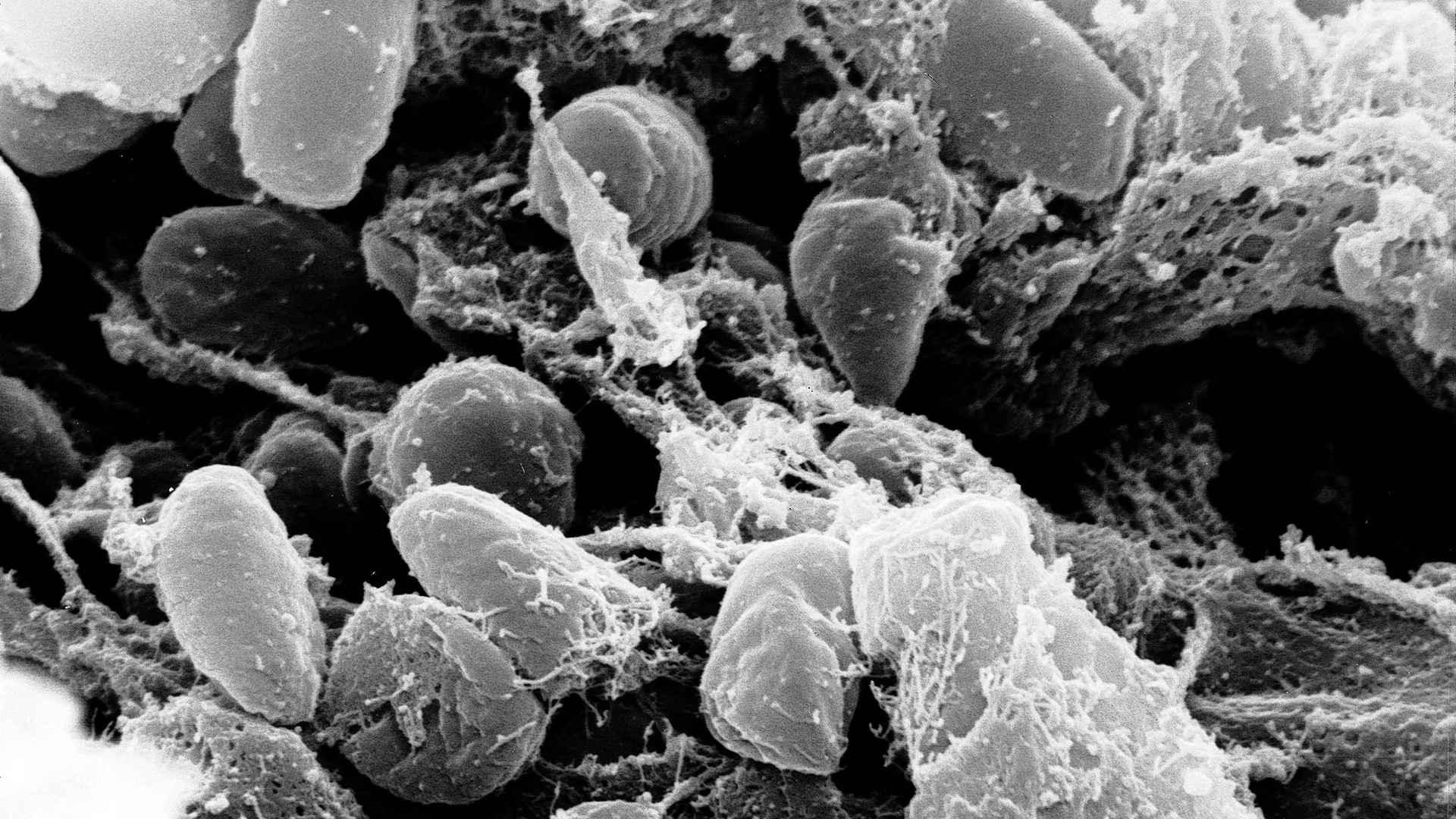
For years, researchers have been attempting to trace the origin of the Black Death, a bubonic plague that spread across the world via Oriental rat fleas that carried Yersinia pestis, a bacteria found in infected rodents including rats, mice, ground squirrels, rabbits and chipmunks.
The Black Death claimed the lives of 75 to 200 million people in Eurasia and North Africa between 1346 and 1353. Despite knowing various details associated with the plague such as its spread and death toll, researchers have argued for centuries about its exact origin, until now.
Historian Phil Slavin, an associate professor at the University of Stirling in Scotland, has long dreamed of discovering the origin of the Black Death and was tasked with examining 14th century tombstones inscribed with Syriac letters found at two grave sites in what is now known as Kyrgyzstan.
The burial sites—which are located near Lake Issyk-Kul in Kyrgyzstan—were first excavated in the 1880s, and in 2017 were re-analyzed by Slavin and his team. The inscriptions on the 14th century stones revealed something shocking: of the 467 tombstones that were examined, 118 of those were dated either 1338 or 1339. The inscriptions on these stones said the cause of death was “mawtānā,” a Syriac word meaning “pestilence.”
“When you have one or two years with excess mortality, it means that something was going on. But another thing that really caught my attention is the fact that it wasn’t any year–– because it was just seven or eight years before the (plague) actually came to Europe,” said Slavin.
Thirty of the remains which were exhumed in the 1880s had been taken to the Peter the Great Museum of Anthropology and Ethnography in St. Petersburg, Russia. With permission from the museum, Professor Johannes Krause, who works at the Max Planck Institute for Evolutionary Anthropology in Leipzig, and Dr. Maria Spyrou, who works at the University of Tübingen in Germany, removed DNA from the teeth of the remains.
After studying the DNA extractions, the scientists found Yersinia pestis bacteria in three of the seven individuals whose DNA they were able to study. Those with the bacterial DNA had died in 1338, just nine years before the trade ships carried the Black Death to the Mediterranean.
According to researchers, the genetic material of the bacteria is actually a direct ancestor of the strain responsible for the plague that claimed 60% of the population across Eurasia in the mid-14th century.
According to the World Health Organization (WHO), up to 3,000 cases of the plague are still reported every year, primarily in Africa, Asia and South America.
An infected rat flea can transfer the bacteria to humans, or the bacteria can enter a cut on a person’s skin if that person has had direct contact with the meat or blood of an infected animal. The bacteria can also transfer through breathing in droplets of the bacteria of an infected human or animal. But with prompt administration of antibiotics, over 90% of those infected often recover.
Despite not knowing exactly which animal was responsible for transmitting the plague to humans—though they speculate it could have been, or may be related to, wild marmots living in the Tian Shan mountains near grave sites—the researchers say discovering the geographical origin of the plague is a major stepping stone in studying pandemics both historically and currently.
“Just like Covid, the Black Death was an emerging disease, and the start of a huge pandemic that went on for some 500 years. It’s very important to understand actually in what circumstances did it emerge,” Krause said.
Image credit: Wikipedia Commons
Won’t be long until all those excited researchers are working with brand new hybrid samples of the virus in undisclosed biolabs all across Europe.
You know, for our safety ????